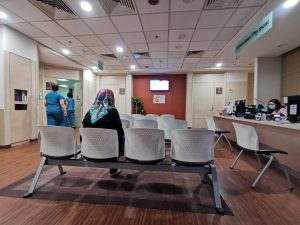A nurse working at a public hospital in Selangor claimed that nurses who voiced concerns were being blacklisted. This is reported in a recent interview with Malaysia’s reliable medical news portal.
Nurses in government hospitals are said to be silenced with threats of transfers or blacklisting due to speaking out regarding workplace issues. This is according to an anonymous nurse.
What Is Blacklisting?
The source from the public hospital strongly felt that the Ministry of Health (MOH) was blacklisting nurses for raising valid concerns instead of prioritising their welfare. She explained that, unlike doctors, nurses have to face ‘bans’ or transfers for speaking out.
She also feels that MOH is swift to develop gag orders when dealing with comments and statements on social media and media interviews. However, she felt that they refuse to listen to opinions and feedback from nurses during staff meetings.
The source also stated that staff meetings were purely for record-keeping and had no impact. She added that the MOH’s Public Complaints Management System (SISPAA) was ineffective as higher-ups can determine who made the complaints. She felt that complaints made as a group were usually safer, as no single individual is targeted.
“Your Problem Is Not My Problem”
The source went on to explain that the recent transfer of nurses from specialist clinics to wards in MOH hospitals nationwide would affect the lives of many nurses. The senior nurse lamented the difficulty they would face, especially with balancing work and family.
She claims that the MOH is not accepting any appeals from nurses affected by the transfer. Additionally, she felt that the MOH’s ‘your problem is not my problem’ approach has caused nurses to feel dejected. She went on to say that despite the argument that nurses are vital components of clinics, they are told by the MOH that they can always be replaced.
Expectation Vs Reality
The source stated that nurses who work in clinics are thought to have less work, have more days off, or do not improve their skills compared to nurses in hospital wards. However, the senior nurse felt that reality was otherwise.
The transfer of nurses from specialist clinics to wards may affect the training of nurses. The source used to work in a ward and now works in a clinic. She explained that nurses gain lots of experience from the large numbers of patients coming to clinics regularly. Besides that, she also felt that nurses studying would experience difficulties maintaining a consistent study routine without a fixed schedule.
She also stated that clinic nurses have fixed working hours. They did not have Passovers like the wards and were usually done with their tasks within the same day. They handle patient files and data from patients’ listing doctors to keep the clinics running smoothly.
Medical Assistants Replacing Nurses
The source likened the reshuffling of nurses to the ‘messy handling of a household’. She also expressed concern over the potential issues that may arise from medical assistants taking over the roles of nurses in clinics.
While she agrees about medical assistants performing clinical duties, she doubts they can perform up to par as they do not receive the same training as nurses. She believes that while it may not compromise patient safety, she anticipates patient feedback regarding the changes in the quality of care.
Conclusion
The MOH and the medical fraternity nationwide need to have better communication. They need to start resolving issues that continue to plague the healthcare system. Healthcare workers are vital to the nation, and their service should not go unnoticed. Therefore, their pleas should be considered seriously. Blacklisting nurses should not be an option.
While it is entirely understandable that MOH has its hands full, measures need to be taken to start dealing with these issues properly to prevent the collapse of the Malaysian healthcare system.













